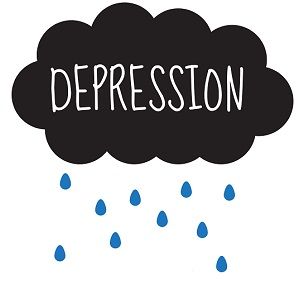Article
The 7 Most Effective Tools for Diagnosing Depression
Author(s):
These tools can reduce selection bias and misdiagnosis, and improve communication between primary and secondary care physicians.

A team of multinational researchers has evaluated tools used in primary care for the diagnosis of depression, and identified 7 that are most effective for use by primary care researchers.
J.Y. Le Reste, MD, PhD, and Patrice Nabbe, MD, of the Université de Bretagne Occidentale Brest, France, and colleagues from 8 European countries, completed their systematic review by collecting data on diagnostic tools produced in the last 15 years.
Primary care physicians tend to be less comfortable with use of diagnostic tools, which leads to a reluctance to diagnose mental illnesses, according to the authors.
"Identifying the [tools] that are validated, and evaluating them, will create and opportunity to enhance primary care depression diagnosis. In addition, it will ultimately reduce selection bias and misdiagnosis,” they wrote.
The identification of a central set of tools for diagnosis of depression could also improve communication between primary care providers and secondary care specialists, providing a common language for patient care.
According to study results, these are the 7 tools that were found to be most useful for primary care research:
- Geriatric Depression Scale with 5, 15, and 30 items (GDS-5)
- Geriatric Depression Scale with 15 items (GDS-15)
- Geriatric Depression Scale with 30 items (GDS-30)
- The Hopkins Symptoms Checklist with 25 Items (HSCL-25)
- The Hospital Anxiety Depression Scale (HADS)
- The Physical Symptom Checklist in 51 Items (PSC-51)
- The Center for Epidemiologic Studies Depression Scale Revised (CES-DR)
The selected tools have not been used frequently enough in everyday medicine, the authors noted, adding that there is definite disagreement among psychiatrists as to the cause of that lack of use.
"[Psychiatrists] argue that the difficulty of having to combine validity, utility and disease status in one tool prevents clinicians from using them," while "FPs are dubious about the validity of DSM for primary care," and avoid utilizing the types of scales the DSM recommends, researchers wrote.
Although limitations of the study left researchers unable to designate these 7 tools as "the best," they were able to provide data to validate the tools as useful for diagnosis of depression based on diagnostic standards provided by the Diagnostic and Statistical Manual of Mental Disorders (DSM) from the American Psychiatric Association.
To evaluate efficacy, researchers collected data from studies of tools used for diagnosis of depression in adult and/or elderly patients in primary settings. They were further evaluated and selected for their inclusion of statistical validity study data on the tools' ability to positively or negatively diagnose depression in patients in comparison to psychiatric examination standards for determining depression (based on DSM 4th edition). 4 studies were selected utilizing the 7 tools. Each study used one or more of the 7 tools to evaluate patients for depression on a scale before comparing the resulting diagnosis to that of a trained psychiatrist/psychologist using DSM criteria.
The first study, by Sanchez-Garcia (2008), used CES-DR to evaluate depression in 534 patients, and compared the results to data from a full psychiatric evaluation using a semi-structured tool based on DMS-IV. The second study, by De Waal (2009), used GDS and HADS to evaluate depression in 473 patients, and compared the results to diagnoses from patient-interviews with a WHO-certified psychologist using DSM-IV criteria. A third study, by Ortega-Orcos (2007), used PSC-51 and GDS-5 to evaluate depression in 301 patients in comparison to full psychiatric evaluation using DSM-IV criteria. The final study, by Fröjdh (2004), used the GDS-15 and HSCL-25 to evaluate depression in 74 patients and compared the results with a full psychiatric interview using the Montgomery-Asberg-Depression-Rating Scale (MADRS) which is based on DSM-IV criteria.
Data from studies focusing on the 7 selected tools (GDS -5,-15, -30; HSCL-25; HADS; PSC51; and CES-DR) were compiled on sensitivity, specificity, predictive value (positive and negative), and the Youden Index (a means of summarizing and rating diagnostic test performance). Of the 7 tools, the HSCL-25 test proved to have the highest sensitivity (.94), while the GDS-15 proved to have the highest specificity, positive predictive value, and negative predictive value (Sp 0.98, PPV 0.86, NPV 0.97). All other tests performed successfully in all areas, with lower numbers going to the CES-DR in relation to specificity (0.49) and positive predictive value (0.5).
Reste and Nabbe’s hope their study will be the first step in providing evaluated tools to assist family practitioners in gaining confidence in mental health diagnoses, particularly to young physicians who struggle with depression diagnoses.
"Family practitioners experience problems when diagnosing depression in their patients, which may lead to over-prescription of antidepressant drugs. They are the first point of care…but they seem to be less comfortable with the use of formal diagnostic tools," researchers wrote.
Identifying these 7 tools is only an entry point — researchers hope that future studies continue to work towards selection of a common tool for use by FPs in diagnosis of depression, which will be not only statistically valid, but also useful in terms of reliability, efficiency, and ergonomics in a primary care setting.
The article "Which DSM Validated Tools for Diagnosing depression are usable in primary care research? A Systematic Literature Review" appeared in the January 2017 issue of European Psychiatry.





